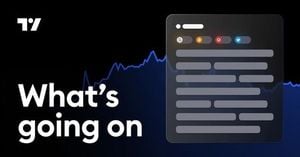Millions of pensioners across England and Wales are set to benefit from a reinstated Winter Fuel Payment this coming winter, following a significant policy reversal by the Department for Work and Pensions (DWP). After last year’s controversial cutbacks, which drastically reduced eligibility, the government has now expanded access to the payment, ensuring that around nine million pensioners will receive support to help cover heating costs during the colder months.
The Winter Fuel Payment, traditionally an automatic annual allowance to help older people with their energy bills, was subject to new means-testing rules introduced in 2024 by the Labour government. These changes limited payments to pensioners above state pension age who claimed certain benefits, effectively slashing the number of recipients from 11.4 million to approximately 1.5 million. The income threshold under last year’s rules was a modest £11,600, leaving many pensioners without assistance.
However, the government’s June 2025 u-turn has expanded eligibility considerably. Under the new framework, all pensioners with a taxable income of £35,000 or less will automatically qualify for the Winter Fuel Payment. This adjustment means that about three-quarters of all state pensioners in England and Wales will receive support this winter, a move welcomed by campaigners and financial experts alike.
The DWP has clarified the payment structure and eligibility rules, particularly addressing how the allowance will be distributed among pensioners who live as couples. Households will be entitled to either £200 or £300, depending on the ages of the pensioners living there. Specifically, households that include someone aged 80 or over will receive the higher amount of £300, while those with pensioners under 80 will get £200.
For couples living together, the payment is split based on individual ages and incomes. If both partners are over 80, they will each receive £150. If only one partner is 80 or older, the older person receives £200 and the younger gets £100. When both partners are under 80, the payment is divided equally at £100 each. However, income plays a crucial role in determining the final amount received.
The new rules mean that each pensioner’s income is assessed individually rather than combined household income. If one partner in a couple earns over the £35,000 threshold, their portion of the payment will be reclaimed by HM Revenue and Customs (HMRC) via the tax system, either through PAYE or self-assessment. This arrangement results in the eligible partner receiving only their share of the payment. For example, a couple both under 80 with one partner earning above the threshold will receive a total of £100, reflecting the clawback of the higher earner’s half.
Financial expert Martin Lewis has praised this approach, describing it as a "good system compared to what we thought was going to happen," noting that initial fears suggested the payment might be clawed back based on the higher earner's income alone.
There are exceptions for pensioners claiming Pension Credit, an income-related benefit. In these cases, the payment is not split, and couples receive either £200 or £300 (if one partner is 80 or over) as a single lump sum. Furthermore, these pensioners are exempt from clawbacks since eligibility for Pension Credit inherently excludes higher incomes.
The payment will be made automatically to eligible pensioners, with no action required on their part. Those earning above the threshold will still receive the payment but will see it reclaimed through the tax system, ensuring fairness while maintaining broad support for lower-income pensioners. Additionally, pensioners who prefer to opt out and decline the payment will be able to do so, with further guidance expected from the government.
Chancellor of the Exchequer Rachel Reeves commented on the changes, stating, "Targeting Winter Fuel Payments was a tough decision, but the right decision because of the inheritance we had been left by the previous government. It is also right that we continue to means-test this payment so that it is targeted and fair, rather than restoring eligibility to everyone including the wealthiest. But we have now acted to expand the eligibility of the Winter Fuel Payment so no pensioner on a lower income will miss out. This will mean over three quarters of pensioners receiving the payment in England and Wales later this winter."
The government expects to spend approximately £1.25 billion on the Winter Fuel Payment this year, with the cost largely offset by reclaiming payments from higher-income pensioners. This financial balancing act aims to provide essential support to those most in need without undue burden on public finances.
In addition to the Winter Fuel Payment, over 12 million pensioners across the UK will benefit from the State Pension Triple Lock, which guarantees an increase of up to £1,900 during the current parliament, further bolstering financial security for older adults.
This policy reversal marks a significant shift in the government’s approach to supporting pensioners during the winter months. After last year’s backlash and criticism from campaigners who argued that many vulnerable pensioners were left out in the cold, the expanded eligibility and clarified rules provide much-needed relief ahead of the colder season.
As the colder months approach, millions of pensioners will now receive financial assistance to help manage heating costs, easing the pressure on household budgets. With the Winter Fuel Payment reinstated to cover a broad swath of pensioners, the government hopes to avoid the hardship seen last year and ensure that older people receive the support they deserve.




